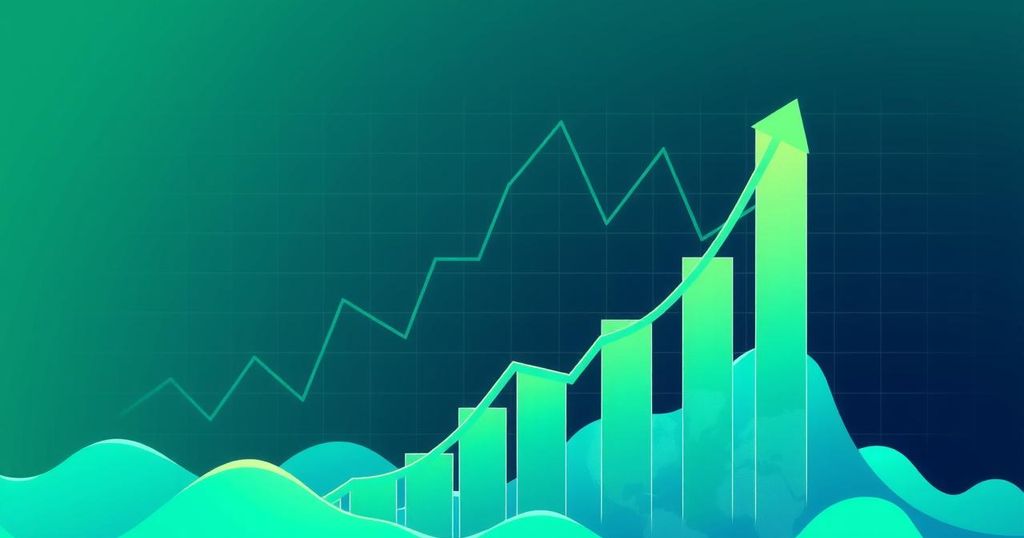US-China Tariff Rumours Fuel Crypto Market Surge Towards $3 Trillion
Rumours of tariff easement between the US and China led to market rallies in Bitcoin and stocks. Treasury Secretary Scott Bessent suggested that de-escalation is likely, prompting significant increases in market indices. Despite traditional finance stocks declining, Bitcoin remained stable, indicating a potential decoupling from stock market fluctuations. Investors should remain watchful of future tariff discussions.
Recent speculation regarding the easing of tariffs between the US and China has spurred both Bitcoin and stock market rallies. Treasury Secretary Scott Bessent’s comments ignited optimism, marking the second market surge this month linked to tariff discussions. However, while traditional markets have started to cool after initial excitement, Bitcoin’s price has remained stable, potentially indicating its decoupling from stock market trends.
Bessent’s remarks highlighted the unsustainable nature of current tariff levels, suggesting de-escalation in the near future. His statements appear to have been significant, as markets reacted positively with the Dow Jones climbing 1,000 points, the S&P 500 gaining 500 points, and the Nasdaq increasing by 3%. This momentary excitement has created a sense of relief in the market.
Despite being an advocate for cryptocurrency, Bessent does not hold the authority to amend Trump’s tariff policies. After a brief period of market enthusiasm, traditional stocks began to decline anew. This situation echoes a previous instance where stock markets fell following an official denial of tariff pause rumours, unlike today’s lack of an official response to Bessent’s comments.
Notably, while traditional markets have faced downward pressure, Bitcoin has remained robust above $91,000, contributing to the overall crypto market cap approaching $3 trillion. This stability during adverse market conditions raises questions about Bitcoin’s potential as a recession-resistant asset, although its performance is still affected by different economic factors compared to traditional finance. Future developments around tariffs should be closely monitored by investors.




Post Comment